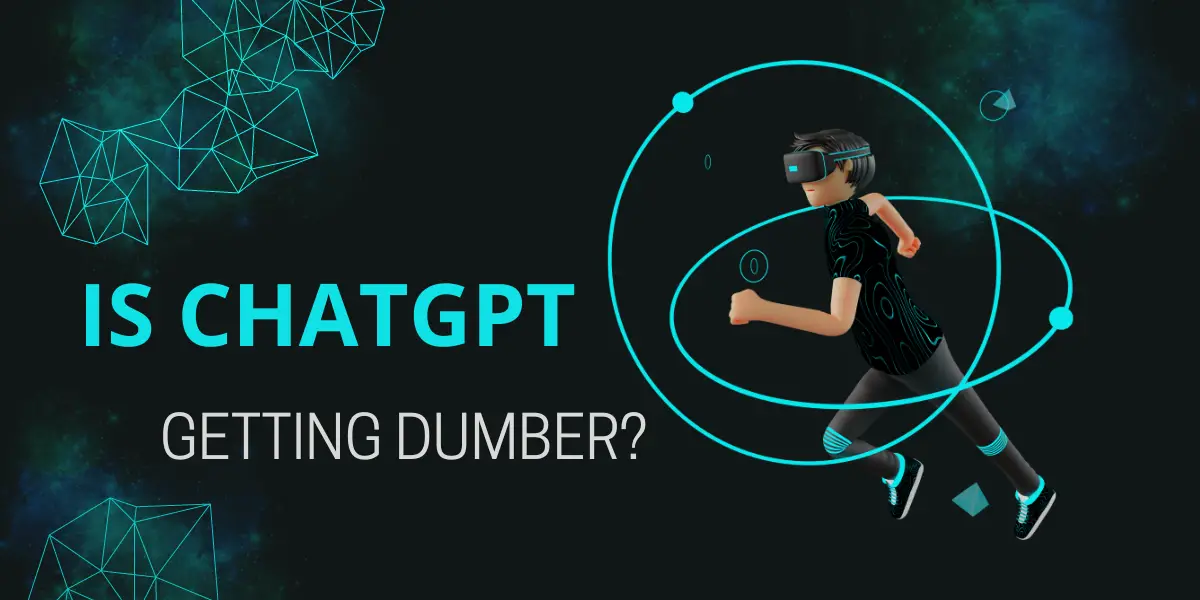Is ChatGPT Getting Dumber?Or Is OpenAI Trying To Reduce Costs?

Artificial Intelligence (AI) has been a game-changer in various sectors, with OpenAI’s ChatGPT being one of the most prominent examples. However, recent observations and studies suggest a decline in the performance of this AI model, raising questions about its effectiveness and the strategies employed by OpenAI.
Table of Contents
The Rise of ChatGPT
ChatGPT, a product of OpenAI, has become a mainstream face of consumer AI. Its versatility and intelligence have made it a popular tool among users, serving as an all-purpose assistant, a patient tutor, and even an accomplice in coding. However, recent months have seen a shift in user experiences, with many reporting a decline in the AI’s performance.
User Observations and Concerns
Users have reported that the responses from ChatGPT have become less intelligent and more superficial over time. Some have noted that the AI’s performance in coding tasks has significantly worsened. These observations have sparked debates on various platforms, with users trying to decipher the cause behind this perceived decline.
Research Findings: A Confirmation of the Decline?
Backing up these user observations, a recent study by researchers from Stanford University and UC Berkeley found a significant change in the behavior of GPT-3.5 and GPT-4, the AI models underlying ChatGPT. The study revealed a marked decrease in the accuracy of responses over a few months, with GPT-4’s accuracy in identifying prime numbers dropping from 97.6% in March 2023 to a mere 2.4% in June 2023.
OpenAI's Response to the Claims
In response to these claims, OpenAI’s Vice President of Product, Peter Welinder, denied any intentional dumbing down of GPT-4. He suggested that the perceived decline in performance could be due to users noticing issues they hadn’t seen before as they use the AI more heavily.
Theories Behind the Decline
While the exact reason for the perceived decline in ChatGPT’s performance remains unclear, several theories have been proposed. One theory suggests that OpenAI is optimizing for performance and trying to lower costs, which could potentially impact the AI’s performance. Another theory posits that OpenAI’s attempts to align or censor the AI’s output could be interfering with its performance.
Implications for OpenAI and the AI Industry
The perceived decline in ChatGPT’s performance raises several important questions. It challenges OpenAI’s claim that their models are improving over time. It also raises questions about the impact of rapid updates on the AI’s performance. If the quality of ChatGPT continues to decline, OpenAI could lose its edge over its rivals in the AI market.
The Future of ChatGPT and AI Models
The future of ChatGPT and similar AI models depends on how these issues are addressed. It’s crucial to understand whether updates aimed at improving some aspects of the model are actually hurting its capability in other dimensions. As AI continues to play an increasingly important role in our lives, it’s crucial that these questions are addressed.
Conclusion
In conclusion, while it’s clear that many users and researchers believe that ChatGPT is getting dumber, and I, who works with ChatGPT and repeat ChatGPT login–using–log out process every day, believe it is getting much more dumber,too. Still, the exact reasons for this perceived decline in performance remain unclear. What is clear, however, is that this issue raises important questions about the development and management of AI models. As AI continues to play an increasingly important role in our lives, it’s crucial that these questions are addressed. Only then can we fully harness the potential of AI while minimizing its risks.

